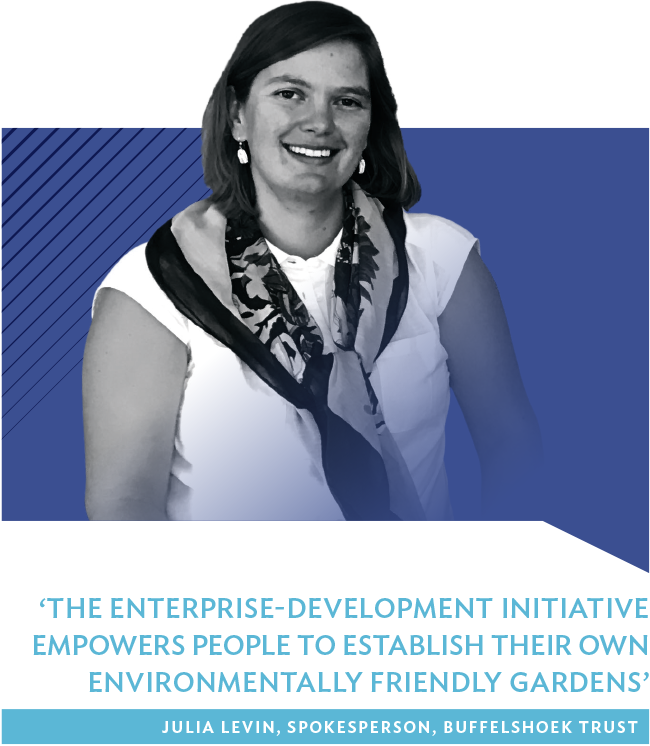A JSE collaboration with the Buffelshoek Trust that feeds into Conservation South Africa, and is focused on a schools programme, has resulted in the establishment of 10 computer centres in two high schools and six primary schools in the Manyeleti Circuit of the Bushbuckridge local municipality. As a result, more than 3 000 pupils and 300 adults have been provided with access to technology-driven education or exposure to enterprise-development initiatives, especially those that have an environmental aspect.
The Buffelshoek Trust, which the JSE has been supporting since 2007, aims to directly stimulate employment opportunities, educate the youth and improve livelihoods in communities that are most directly dependent on natural resources. It does this through community-based environmental management with assistance from government and the private sector.
It is the JSE, however, whose donations have motivated the holistic growth and development of the education programme aspect of the trust, that can take much of the credit in terms of targeting and integrating ICT.
Its contributions have enabled the establishment and operation of functioning computer centres that Julia Levin, Buffelshoek Trust spokesperson, says have ‘enabled the trans-formation from chalkboards to computer-based learning’. Furthermore, it assisted with the construction of classrooms within the Bushbuckridge region.
What makes the project particularly noteworthy is that by introducing ICT to help support management, teaching and learning in schools, it also creates an entrepreneurial capacity that can be integrated into an overall school-improvement programme.
‘Eight matric graduates were trained and contracted as ICT monitors who provide support to their schools while earning an income,’ says Levin.
From an enterprise-development perspective, the computer centres and funds have been directed to assist in the establishment of 71 village-based businesses and the ICT training of some 146 adults. The result is the creation of 100 permanent jobs and 200 temporary jobs across 11 villages. Aside from the employment opportunities, the initiative contributes towards safer communities and poverty alleviation.
With a focus on environmental sustainability within communities, the JSE’s support has also enabled the establishment of commercial-grade vegetable farms at some schools. Not only do these provide the learners with fresh vegetables but they have created employment for the community.
‘The gardens are used as part of a wider education and enterprise-development initiative that empowers people to establish their own environmentally friendly gardens,’ says Levin. And it’s not just gardens – the JSE contributions have also been used to manage wildlife-borne diseases; to restore the biodiversity of the community; and to support the sustainable co-existence of community cattle and wildlife, helping to bring grass-fed meat onto the local market. Mitigating drought challenges, dam repairs and maintenance have also been included in the efforts to minimise water-security threats to people and livestock.
Idris Seedat, the JSE’s Head of CSI, says this is the type of initiative that the JSE is committed to – not only by the provision of funds but also time. ‘Social development must extend beyond mere giving,’ he says. ‘It is why the JSE is focused on sustainable initiatives that positively impact on South African communities.’
The success of the Buffelshoek Trust, which has been directly responsible for building schools, clinics and other social infrastructure that affects 23 000 people, continues with a partnership with the SA branch of NGO Conservation International, which is building a new green economy in SA. This aligns well with the JSE’s embrace of initiatives that stimulate climate resilience.









